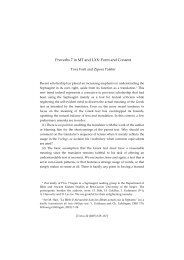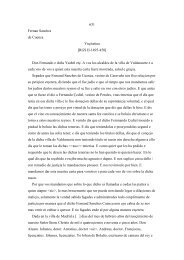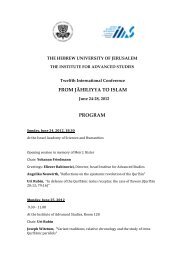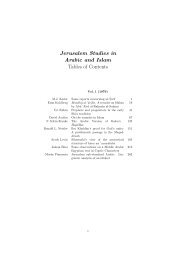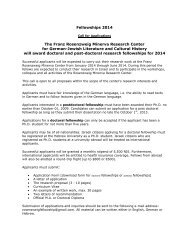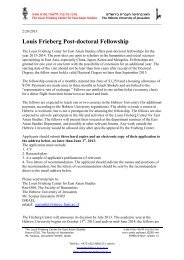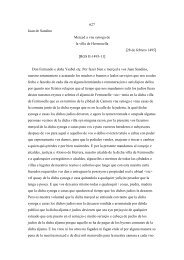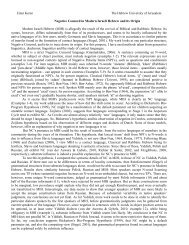Baber Johansen
Baber Johansen
Baber Johansen
Create successful ePaper yourself
Turn your PDF publications into a flip-book with our unique Google optimized e-Paper software.
35<br />
understand this obligation and act accordingly. The cultic obligations of<br />
the mentally ill are also determined by the cosmic causes, except that the<br />
mentally ill will not have to execute their obligations until after they<br />
recover their mental capacity. The second position, held by the<br />
Transoxanians, and more specifically the Samarqandīs school, holds that<br />
a legal obligation makes sense only if its performance can be required<br />
and that, therefore, it should not be imposed on someone who does not<br />
have the capacity to perform it. According to strict legal methodology,<br />
the mentally ill cannot, therefore, be obliged to fulfill duties that were<br />
imposed on them while they were unable to understand and to fulfill<br />
them. But equity allows imposing such an obligation upon them, because,<br />
through the performance of the cultic act, the mentally ill can aspire to<br />
God’s recompense for their fasting. To assure them this reward is an<br />
equitable solution. The retroactive performance of the cultic duty is thus<br />
a favor done to the mentally ill. A third opinion, that of the eleventhcentury<br />
Transoxanian jurist Sarakhsī, affirms that cosmic causes produce<br />
cultic obligations because God "glorifies (specific) times and spaces"<br />
through them. But these causes have no meaning for human beings<br />
unless the persons concerned are able to relate the effect of the causes in<br />
an appropriate way to their own choices. The believers must be able to<br />
understand, to refuse or to honor their obligations. Once this condition is<br />
fulfilled, the mentally ill, once they recover their mental capacity, may be<br />
requested to perform the cultic obligation retroactively for all the days<br />
that they missed during a month of RamaÃān. 90<br />
All Sunnī schools of law were thus acutely aware of the tension that may<br />
exist, for the irrational actor, between the notion of the determining force<br />
of the cosmic causes and the concept of a legal obligation as developed<br />
for the relations between human beings in society. Two of them decided<br />
to assimilate the cultic obligation to other civil obligations: they did not<br />
admit the notion that cosmic causes can produce personal obligations of<br />
the mentally ill. Instead, they gave priority to the criterion of mental<br />
capacity over the concept of cosmic causes. The Íanafīs tried to strike an<br />
equilibrium between the notion of legal capacity and that of the cosmic<br />
causes. Only the MÁlikÐs clung uncompromisingly to the doctrine that the




